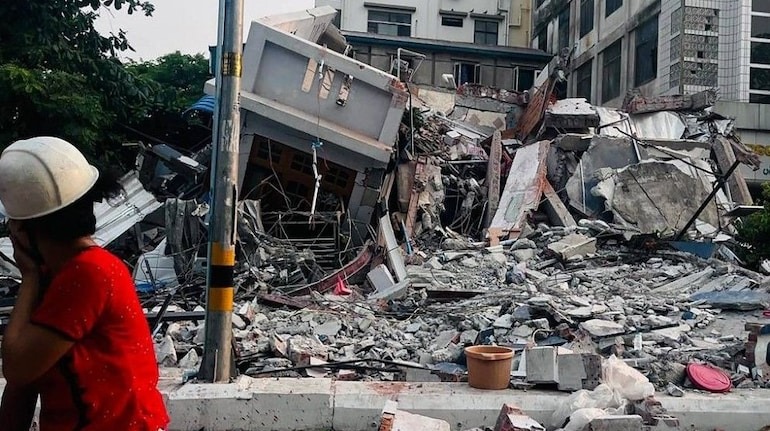
The death toll from Myanmar’s devastating March 28 earthquake has risen to 3,354, with 4,850 injured and 220 still missing, according to state media. As the nation grapples with the disaster's aftermath, UN aid chief Tom Fletcher commended local humanitarian and community groups for their courageous efforts in providing aid to survivors.
UN Applauds Community-Led Relief Efforts
Fletcher, who visited Mandalay, Myanmar’s second-largest city and near the quake’s epicenter, praised local organizations:
“Many themselves lost everything, and yet kept heading out to support survivors,” he posted on X (formerly Twitter).
Despite limited resources and danger, local responders were the first to act, reflecting immense determination and solidarity in the face of crisis.
Junta Criticized for Restricting Aid to Opposition Areas
The UN Office of the High Commissioner for Human Rights expressed concern over military restrictions on aid delivery in quake-hit regions perceived as unsupportive of the junta’s rule. The agency is currently investigating 53 reported attacks, including 16 that occurred after the ceasefire announcement on Wednesday, involving airstrikes and other assaults on opposition groups.
The military junta has not responded to the allegations.
Min Aung Hlaing Meets Modi, Promises Elections
Senior General Min Aung Hlaing, Myanmar’s military leader, returned from a rare foreign visit to Bangkok, where he participated in a South and Southeast Asian summit and held talks with leaders from India, Thailand, Nepal, Bhutan, and Sri Lanka.
According to Myanmar state media, he reaffirmed plans for “free and fair” elections in December during a meeting with Indian Prime Minister Narendra Modi.
India's official statement emphasized:
“Modi called for a permanent post-quake ceasefire and stressed the need for inclusive and credible elections.”
Critics argue the proposed elections are a ploy to entrench military power through proxy political entities, following the 2021 military coup that ousted Aung San Suu Kyi’s elected government.
Myanmar’s Deepening Crisis
Myanmar remains mired in civil conflict, economic collapse, and humanitarian distress. Since the 2021 coup:
Over 3 million people have been displaced
Healthcare and basic services are in disarray
More than one-third of the population requires aid, per UN estimates
The March 28 earthquake has compounded these challenges, underscoring the urgency of unrestricted humanitarian access and international pressure for political reconciliation.
Read More: The Looming Shadow of War How Iran, Israel, and the US are Navigating a Dangerous Week

 Share
Share



